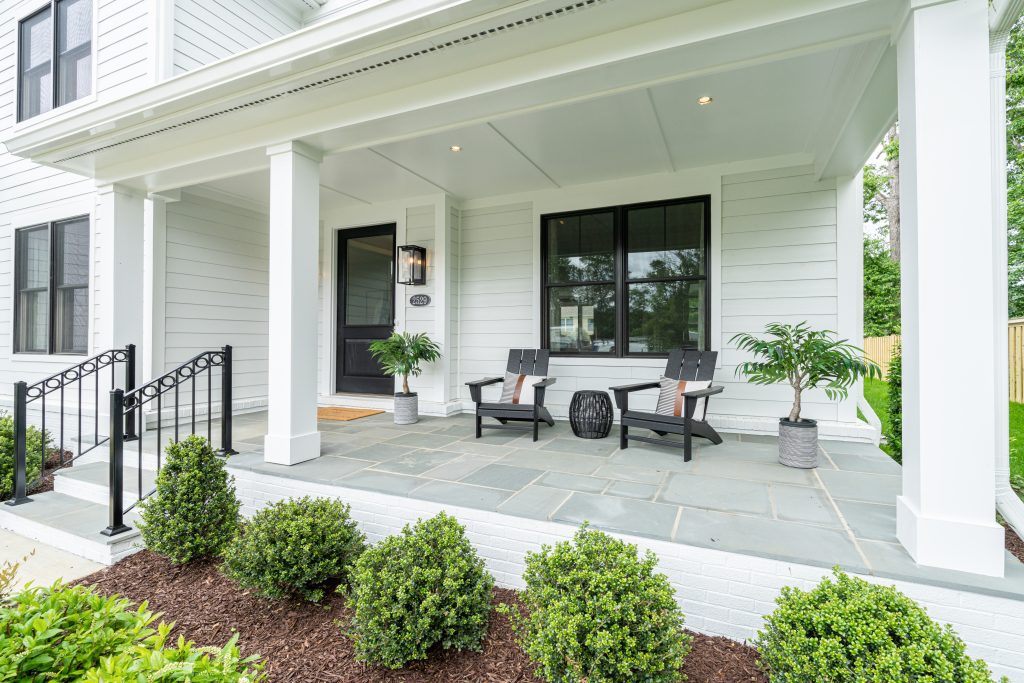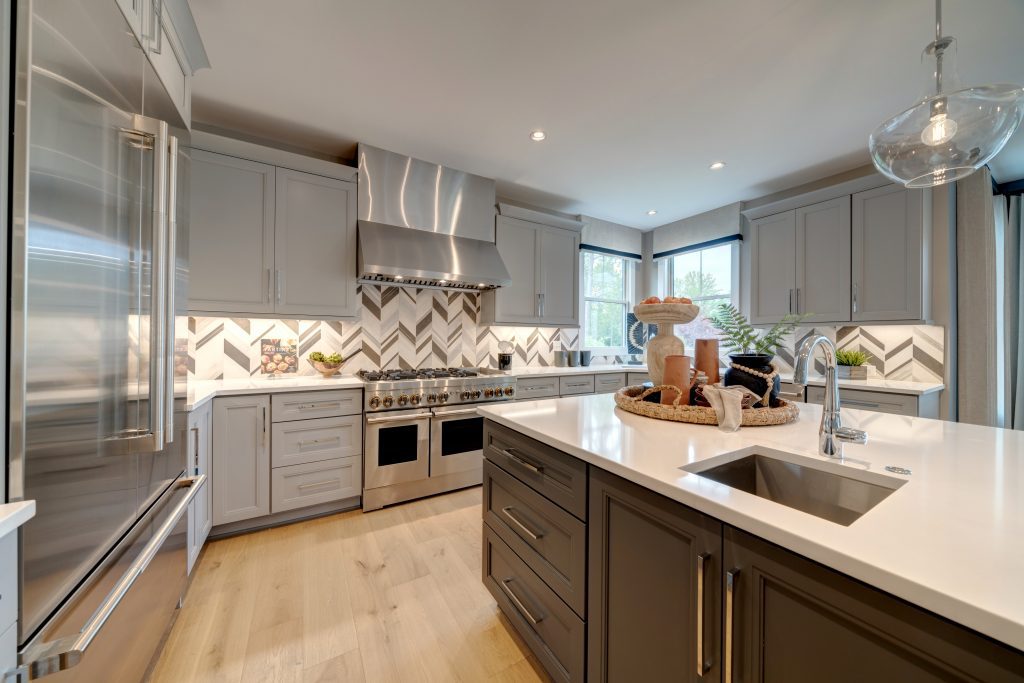The effects of the Covid-19 pandemic, with people having to spend a lot more time in their homes than before, saw many looking at their living spaces and finding a variety of potential changes to be made, both inside and outside.
Frank Kenney, a realtor and contractor in the Northern Virginia region and founder of Kenney Construction, explained that “you’re still seeing some of the modern grays and blacks” in home building, but now many people are “leaning toward all white,” reminiscent of the “Nordic style” of building.

There is also an emphasis on “off-white walls;” “white oak instead of red oak” for cabinets and railings, for example; and a rising popularity in “white cabinets and white backsplashes” in kitchens and bathrooms.
The outsides of homes are starting to see more “black frame windows,” adding to the stark nature of the more modern, Nordic-esque look.
When asked about this aesthetic shift, Kenney said he did not know for sure where this came from, but did say this trend has been “popularized by some shows and social media,” especially on websites like Pinterest.
Speaking more about the specific building materials used, Kenney said that “white oak has become more popular,” partly due to “the airiness of it.” It has become a draw for many who are working with an “open concept” space.
In general, customers are “looking more on the lighter side” visually, looking at “lighter woods” but also emphasizing “sharper edges, straight balusters” and “straight edge door handles.”
Jim Patton, of The Enclave at Aylors Overlook, adds that, in terms of design material, “granite and marble are out,” with quartz becoming a highly popular material for kitchen islands, for example.

“White and gray cabinets dominate” contemporary kitchen design, while hardwood floors “with wide planks throughout the house” have maintained both their usage and popularity.
In terms of the specific areas of a house, Patton shared that “expanded front porches, larger…home offices” and larger “bedrooms for children,” that “include their own baths,” appear to be the most in-demand sections customers want to change, add to or extend.
Kenney says essentially people are desiring “more living space” as well as an increase in their general “recreational space” — no doubt as a result of Covid lockdowns.
“People usually want to bump out their living room or their kitchen, or do something with the bedroom upstairs,” says Kenney. Changes are typically made “on the main level” or at the basement level.
He continued, touching on the projects people have been seeking to make a reality on the outside of their house — outlining how when it comes to porches and decks — he has seen more of them built in the back of a house. With summers getting longer and hotter, homeowners are looking for new spaces “like decks and four season-type rooms.”
“Solar panels have picked up some” in their demand, but “there are a lot of restrictions” that are attached to them, too. They don’t “add a lot of value at the moment.”
With the recent advent in electric cars, homeowners have been increasingly electrifying their garages to maintain 240 volts. Kenney expressed a definite “uptick” for this kind of work. Patton’s experiences confirm this trend.
He also adds that customers have been looking to include “USB charging ports in [their] electrical outlets” as well as applying “extensive…LED lighting” virtually everywhere. “Evolving technologies,” like smart house integration, “are being used, too.”
As reflected on by both professionals, and as influenced by two years of lockdowns, record temperatures and new tech, many homeowners are prioritizing more room and a wider variety of ways to enhance and enjoy their living and recreational spaces.
